How All of Russian TV Became State-Controlled
Short biography of the freedom that never happened.


The oprichnina was a state policy implemented by Tsar Ivan the Terrible in Russia between 1565 and 1572. It was a tool of mass repression of the boyars (Russian aristocrats), including public executions and confiscation of their land and property.
The Oprichnina existed for only seven years, but managed to leave a bloody and cruel mark in history, becoming synonymous with state terror in Russia. The Oprichniki were the personal army of Tsar Ivan the Terrible. They carried out mass executions and repressions among the nobility and the church in the 16th century.
In modern public discourse, oprichniki are often compared with Putin's personal armed forces, or "siloviki". It is a special term for people who work for the state and have the right to use force against their fellow citizens. They are the ones who persecute protesters and torture political prisoners.
The Oprichniki were the first but not the last repressive governmental forced structure in Russian history. They are referred to as the 'original' Russian secret police and the "ancestors" of the FSB (Federal Security Service). This article will explain the origins of the Oprichnina and why its image has become so firmly embedded in the Russian cultural narrative.
In 1547, the Grand Prince of Moscow Ivan IV, also known as "Ivan the Terrible", was crowned as the first Russian tsar in history. So the Tsardom of Russia appeared. At that time, the tsar did not possess absolute autocratic power; the country was also ruled by the nobility through the "Chosen Council" and the Boyar Duma, as well as the Zemsky Sobor, the first Russian parliament that represented feudal classes. However, Ivan gradually sought to consolidate more power.
The conflict between the tsar and nobility became the reason for the introduction of the Oprichnina – a state policy of the Tsardom of Russia from 1565 to 1572. Ivan the Terrible began to search for traitors among the princes and boyars (nobles), executing anyone suspected, confiscating the property and lands of the nobility and the church. However, the Oprichnina was not just a policy of repressive terror, but also a unique territorial system of the country.
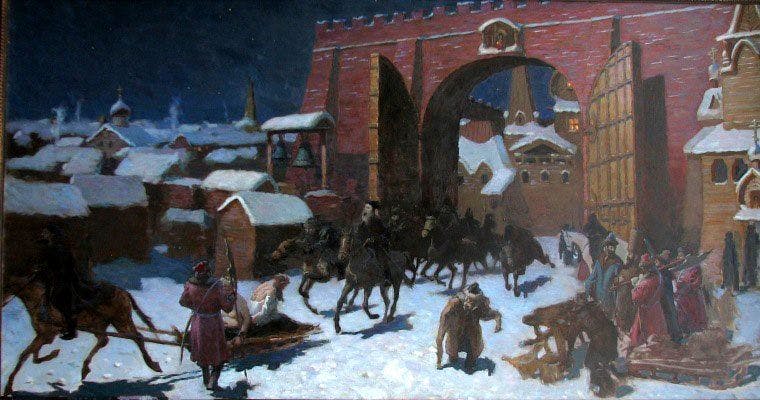
The term "Oprichnina" comes from the Old Russian word "oprich," which means "outside," "separate," "beyond," or "special." The essence of the Oprichnina policy lies in granting special privileges to those who are close to the tsar. This inequality operated at both the legislative and property levels.
In 1565, Ivan the Terrible divided the Tsardom of Russia into two parts - the Oprichnina and the Zemshchina. The Oprichnina included the wealthiest and strategically important regions. These territories were given into the personal ownership of the tsar, who rewarded Oprichniki (members of the Oprichnina) with land for their loyalty. The rest of the Russian Tsardom became the Zemshchina.
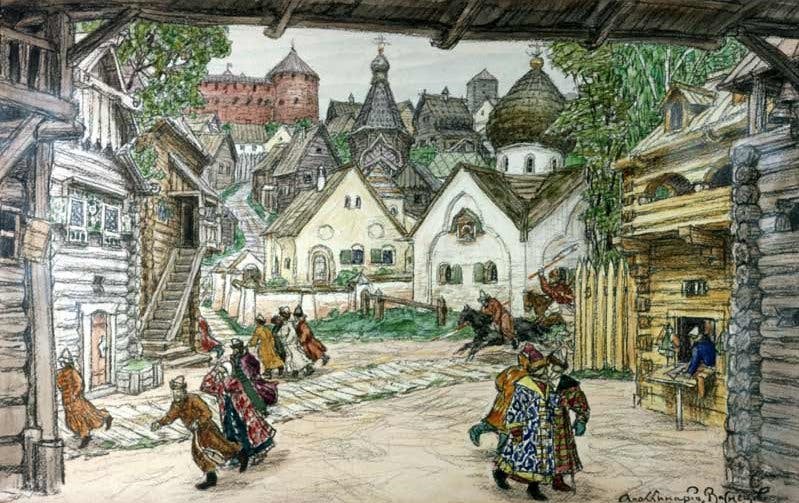
Along with the land, Oprichniki received numerous privileges: the state provided for all their needs, they could barge into the homes of the Zemshchina people and seize their property under the pretext of "fighting against treason." Oprichniki were not held accountable for murders they committed.
The Oprichniki were obedient to the tsar. The tsar rewarded them with wealth for their loyalty, but if he suspected treason, he had the power to strip them of everything and even order their execution.
Oprichniki could be identified by the broom and the severed dog's head attached to their horses. These were symbols of the Oprichnina:
"We will sweep away and bite to death all the tsar's enemies."
The Oprichnina, which was intended to suppress the nobility's independence and strengthen the tsar's power, ultimately plunged the Russian Tsardom into a deep crisis, which almost led to its disintegration.
The Oprichnina and Ivan the Terrible's policies led to:
Due to repressions and wars, a significant part of the population either fled or perished. There were not enough people to cultivate the land, resulting in 50-90% of arable land remaining fallow. The country faced widespread famine, and prices soared by fourfold. The severe economic crisis persisted for decades.
In an attempt to retain peasants who were fleeing from famine and repressions, the state deprived them of their right to free movement and transferred them as the property of landowners. This evolved into serfdom, which was an equivalent of slavery. By the 19th century, out of the 67 million population of the Russian Empire, 23 million were serfs.
The Russian Tsardom failed to achieve its military objectives: both in the Livonian War and on other fronts. It lost all of its former holdings in Livonia and Polotsk to Poland–Lithuania. The Swedes captured Narva and Koporye, while the Crimean Tatars burned Moscow.
The established system of state governance, built over decades, was shattered. The tsar's authority lost its moral legitimacy and legitimacy. From 1598, the country entered the Time of Troubles - a period of dynastic crisis, civil wars, Polish and Swedish invasions, which almost caused the collapse of the Russian Tsardom.
The phenomenon of the Oprichnina has been repeatedly evaluated and reevaluated throughout history depending on the needs of the ruling regime. Even during the time of Ivan the Terrible, there were two perspectives on the Oprichnina – the "official" view that saw it as a fight against treason and the "unofficial" critical view of the tsar's actions. Since then, the role of the Oprichnina in Russian history continues to be assessed ambiguously.
Starting from the late 1930s, Soviet historiography began to portray the Oprichnina in a more positive light. Joseph Stalin criticised the negative portrayal of the Oprichnina in Sergei Eisenstein's film "Ivan the Terrible" and deemed it outdated. According to Stalin, the Oprichniki were progressive forces that fought for a strong centralised state against feudal princes who sought to divide and weaken Russia.

Interestingly, Stalin and Ivan the Terrible presumably had much in common. Both were obsessed with the idea of purging the country of internal enemies. Both created their own personal power structures that battled against "enemies of the people" – the NKVD and the Oprichnina, respectively.
Many contemporary historians agree that the goal of the Oprichnina was to eliminate feudal fragmentation and strengthen autocracy, the system of unlimited tsar’s rule. Repressions were an inevitable element of constructing an autocratic state, which faced opposition from all social strata – the boyars, nobility, clergy, and townspeople. In order to subordinate to the autocratic power the old civil institutions, such as the Boyar Duma, the Zemsky Sobor and others, Ivan the Terrible divided the state into the ruling oprichnina and the zemstvo subordinate to it.
Some researchers also believe that one of the main objectives of the Oprichnina was to increase the personal income of the tsar himself. Historians took this conclusion through the study of Oprichnina's financial policies.
The Oprichnina is not only a subject of historical debate. The reference to it is also used to critique the contemporary political situation in Russia. The image of the punishing hand of the state and its loyal "chain dogs," represented by the Oprichniki in the past and by the siloviki in the present, continues to remain relevant to this day.
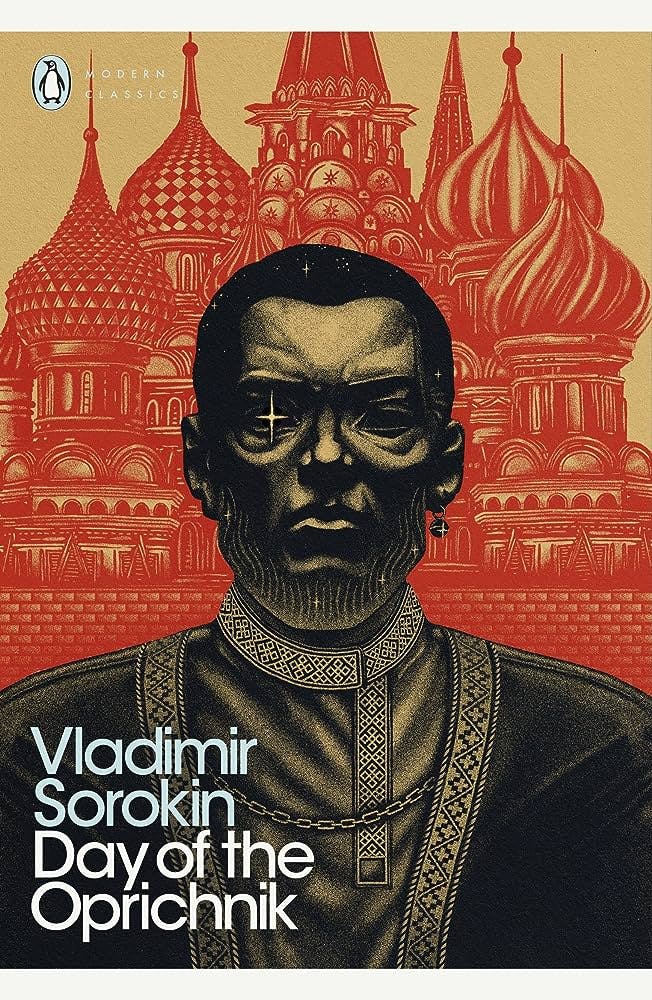
In 2008, the renowned Russian writer Vladimir Sorokin released the novel “The Day of the Oprichnik”, in which he depicted a dystopian reality which awaits Russia if the current political course continues – isolation from the rest of the world, a return to medieval archaism, the revival of the Oprichnina. Main characters of the novella, the Oprichniki, are portrayed as a dark chthonic symbol of all-powerful punitive authorities and state arbitrariness.
Back in 2008, the book was regarded as a dystopia and a satire on modern Russia. However, over time, it began to appear increasingly prophetic. Interestingly, after the start of the full-scale invasion of Ukraine in 2022, the sales of "Day of the Oprichnik" sharply increased.
More and more often, opposition figures draw parallels between the times of Ivan the Terrible and contemporary Russia. In both eras, an authoritarian ruler seized power in the country. To ensure the loyalty of the elite and protect the system from internal enemies, he created his own personal army that suppresses dissent. According to this concept, the roots of Putin's political ideology trace back to the times of Ivan the Terrible – an era when the guarantor of stability was not laws and institutions, but the will of a singular leader.
On the other hand, in Russia, there are many people who sympathise with the "strong hand" of the state and its methods. Many conservative movements in Russia idealise the Oprichnina. Researchers identify two directions of the "neo-Oprichnina" in Russia: religious and political.
The religious neo-Oprichnina consists of radical religious organisations that sacralize autocratic power. One of these groups is even named "The Oprich Brotherhood". Primarily, the religious neo-Oprichnina protests against:
In 2008, they even organised an event to burn Vladimir Sorokin's book "Day of the Oprichnik."
The political neo-Oprichnina is represented by the Eurasian movement led by philosopher Alexander Dugin, a prominent ideologue of the "Russian world". In Dugin's version of Eurasianism, the Russian ethnicity is considered the "most priority Eurasian ethnicity" tasked with the civilizational mission of forming the Eurasian Empire that will encompass the entire continent. The main threat is declared to be the United States and the "Anglo-Saxon world" as a whole. Dugin explicitly stated that since democratic elections and the rule of law are Western endeavours, he recommends implementing a new Oprichnina to "revitalise" the system.
One of the founders of another Eurasian movement, "The Izborsky Club", historian Andrei Fursov, describes Russian history as an eternal balancing act between "order" (Oprichnina) and "chaos" (Time of Troubles). As an example of chaotic times, he cites the Yeltsin-era 1990s. Fursov believes that the concept of the Oprichnina has been and remains a condition for Russia's modernization.
Furthermore, entities like the National Guard (Rosgvardiya), the FSB, and other Russian security forces have been compared successors to the Oprichniki. They see themselves as warriors defending the country from internal enemies, criminals, and terrorists – just as the Oprichniki did, according to Ivan the Terrible's version. The official rhetoric of these security structures states that political opposition are either foreign agents of influence or naive pawns in a Western game against Russia.
The full-scale war in Ukraine has only amplified these sentiments. On September 30, 2022, just nine days after the announcement of partial mobilisation, a concert in support of the annexation of new territories to Russia was held on Red Square in Moscow. Famous Russian actor, screenwriter, and former priest Ivan Okhlobystin spoke at the event, calling on Russians to unite around a "sacred war" and ending his speech with the exclamation "Goyda!" This was the battle cry and greeting of the Oprichniki.
Tento článek ještě nebyl přeložen do češtiny. Hledáme dobrovolníky kteří by nám s tím pomohli.
Short biography of the freedom that never happened.

Over the past century, Russia has oscillated between totalitarianism and authoritarianism, with a brief period of relative freedom in the 1990s. The tradition of dissent has deep roots in Russian history.
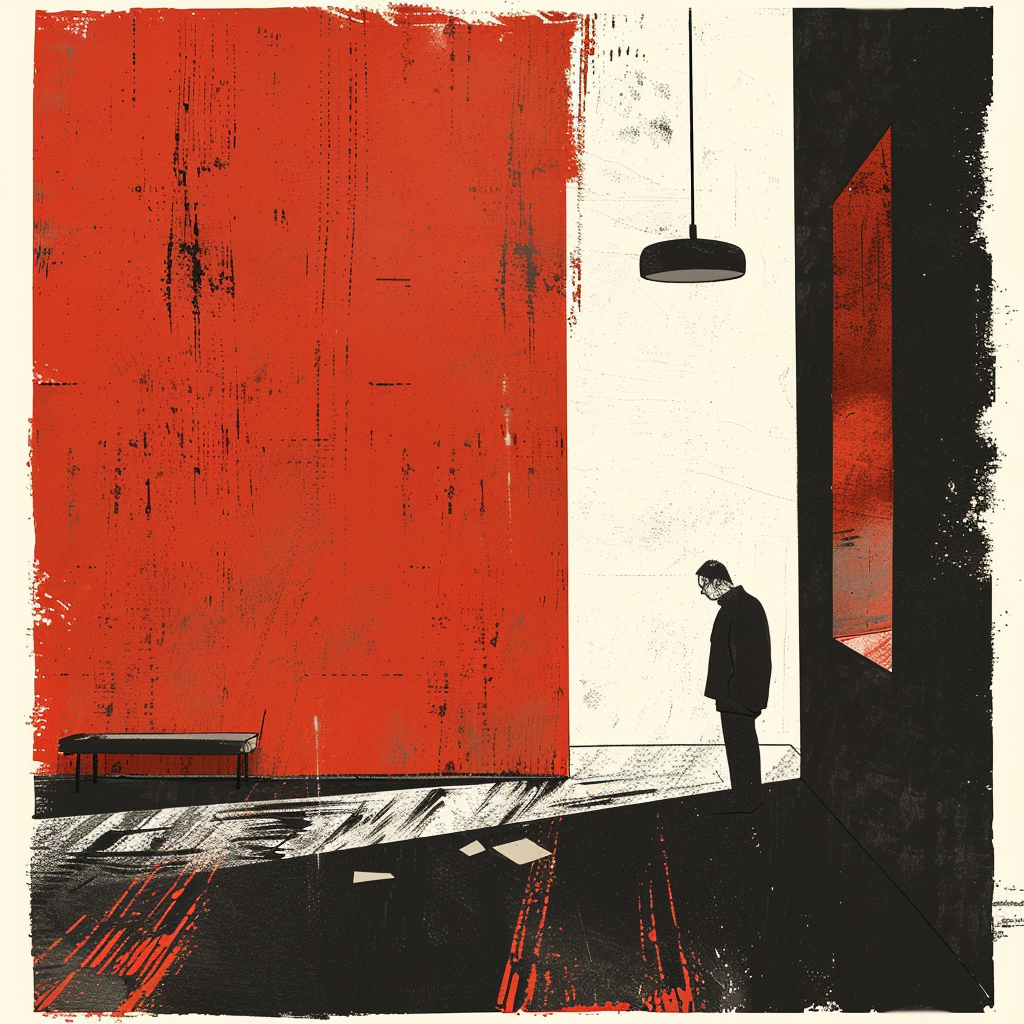
What is the "Russian World" and what does it have to do with the war in Ukraine
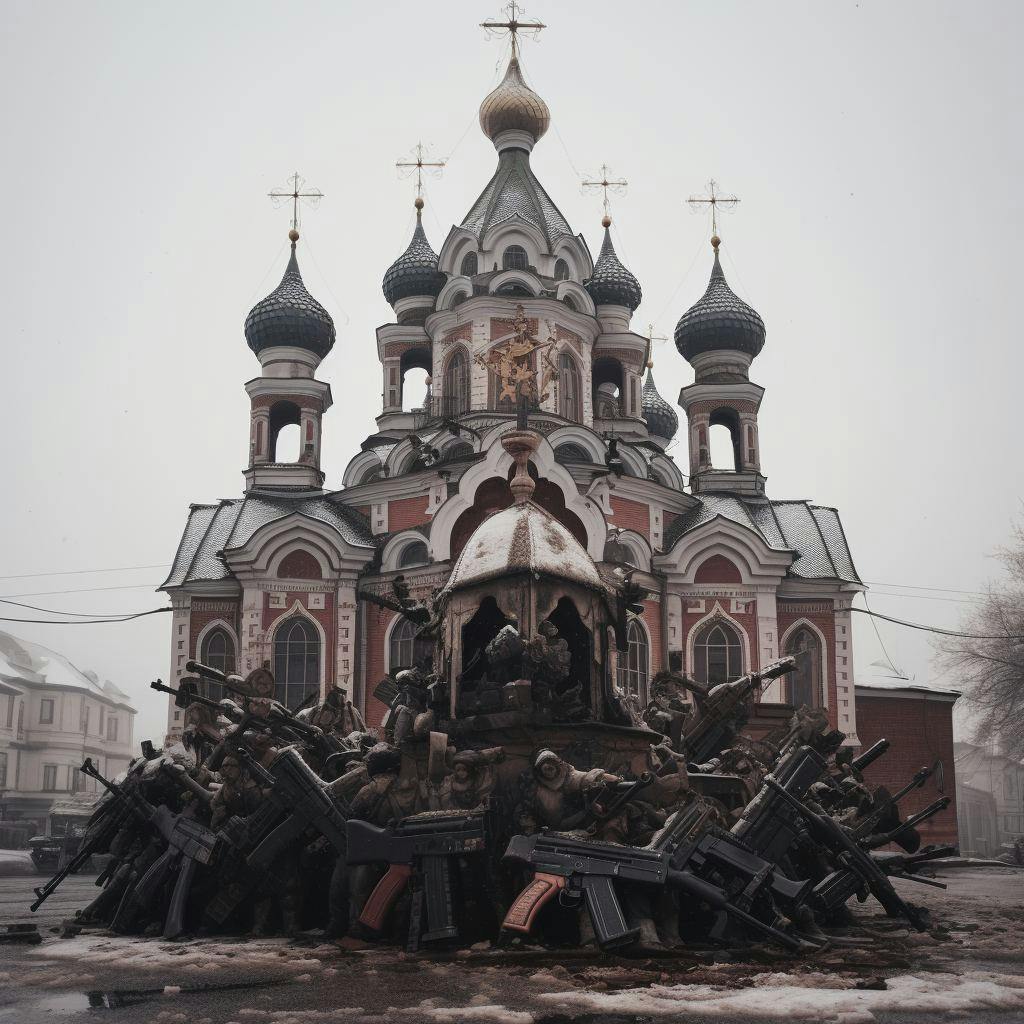
Naše mediální platforma by neexistovala bez našeho mezinárodního týmu dobrovolníků. Chcete se stát jedním/jednou z nich? Zde je seznam aktuálně otevřených pozic:
Je nějaká další oblast ve které byste nám rádi pomohli? Dejte nám vědět:
Mluvíme o současných problémech Ruska a jeho obyvatel, o boji proti válce a za demokracii. Snažíme se, aby byl náš obsah co nejpřístupnější evropskému publiku.
Chcete spolupracovat na obsahu, který vytvořili ruští autoři stojící proti válce?
Chceme, aby lidé v Rusku, kteří se zasazují o mír a demokracii, byli slyšet. Zveřejňujeme jejich příběhy a děláme s nimi rozhovory v rámci projektu Ptej se Rusů.
Jste ruský občan nebo znáte někoho, kdo by se chtěl podělit o svůj příběh? Obraťte se na nás. Vaše zkušenosti pomohou lidem pochopit, jak Rusko funguje.
Vaše zkušenosti můžeme zveřejnit anonymně.
Náš projekt vedou dobrovolníci z celého světa - žádný člen týmu není nijak placen. Projekt však má provozní náklady: hosting, domény, předplatné placených online služeb (např. Midjourney nebo Fillout.com) a reklamu.
Číslo našeho transparentního bankovního účtu je 2702660360/2010, založená je u Fio Banky (Česká republika). Můžete nám buď poslat peníze přímo na něj, nebo nascanovat jeden z QR kódů níže ve vaší bankovní aplikaci:




Poznámka: QR kódy fungují pouze pokud je nascanujete přímo z vaší bankovní aplikace.
Rusko zahájilo válku proti Ukrajině. Tato válka probíhá od roku 2014. 24. února 2022 se pouze zintenzivněla. Miliony Ukrajinců trpí. Ruští činitelé kteří válku zavinili, musí být za své zločiny postaveni před soud.
Ruský režim se snaží umlčet pro-demokratickou část společnosti. Ruští lidé, kteří jsou proti válce, existují - a ruský režim se je snaží ze všech sil umlčet. Chceme tomu zabránit a jejich hlasy nechat zaznít.
Spojení je klíčové. Ruské pro-demokratické iniciativy jsou pro evropskou veřejnost často těžko čitelné. Právní, sociální a historické souvislosti Ruska nejsou vždy jasné. Chceme sdílet informace, budovat mosty a propojovat pro-demokratickou část Ruska se Západem.
Věříme v dialog, ne v izolaci. Opoziční síly v Rusku nebudou schopny cokoli změnit bez podpory demokratického světa. Věříme také, že dialog by měl probíhat oběma směry.
Výběr je na vás. Chápeme hněv vůči ruským zločinům. Jen na vás záleží, zda chcete naslouchat ruskému lidu, který se proti tomu staví.